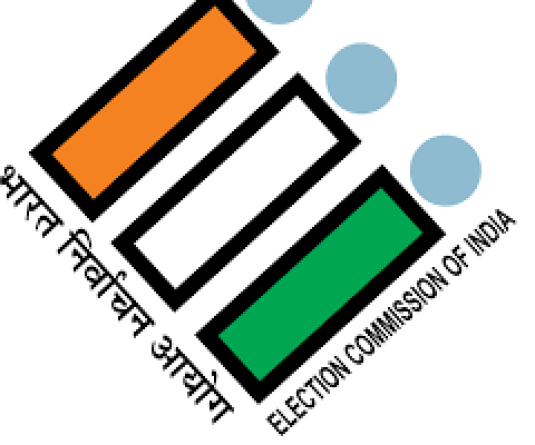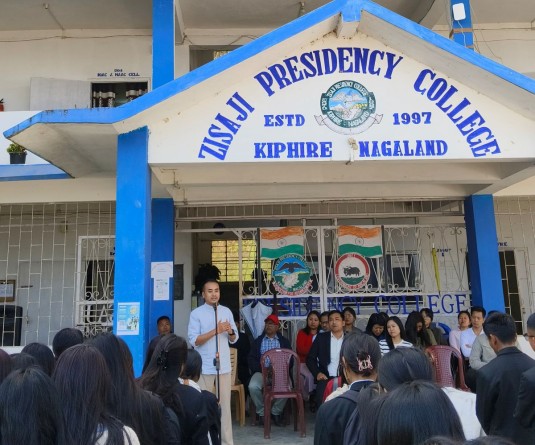
Dimapur, September 24, (MExN): The Working Committee of Naga National Political Groups (WC, NNPGs), led by N Kitovi Zhimomi, has appealed to the Forum for Naga Reconciliation (FNR) and the Sumi Hoho and its frontal affiliates to defer the upcoming Zunheboto meet by a week or two to allow wider participation from Naga civil society stakeholders who have been absent from previous initiatives.
The appeal comes amid ongoing efforts to advance Naga historical and political rights, following previous agreements including the Covenant of Reconciliation (2009), Lenten Agreement (2014), and September Joint Accordant (2022), aimed at fostering unity and dialogue among Naga political groups and civil society.
The WC, NNPGs said the meeting, hosted by the Sumi Hoho, should be “pathbreaking, inclusive, decisive and historic,” and called for the invitation of “every Naga civil society, who have so far been absent from FNR’s initiatives for various reasons,” to ensure “fruitful discourse in the spirit of acceptance and oneness.”
Among those listed were NGBF, ENPO, NTC, CNTC, CNCCI, Naga Hoho, ex-parliamentarians’ forums, church bodies, mothers’ organisations, intellectual groups, senior citizens, and student organisations.
The Committee said it would gladly attend such a gathering “undeterred despite the habitual backtracking antics,” adding that it is in the best interest of the Nagas for the journey to continue with all stakeholders sharing responsibility to take strong decisions. “Entrusting a single individual or few members risks stagnation and indecisiveness at this crucial hour,” it added.
The appeal comes amid ongoing efforts to advance Naga historical and political rights, following earlier agreements including the Covenant of Reconciliation (2009), Lenten Agreement (2014), and September Joint Accordant (2022), which aimed to foster unity and dialogue among Naga political groups and civil society.
To buttress in argument, the WC, NNPGs alleged that the August 3, 2015 Framework Agreement (FA) was signed with NSCN (IM) leaders allegedly turning the FNR's “reconciliatory documents into propaganda papers, taken to New Delhi as an endorsement to sign a political agreement.”
As per the Committee, the Government of India “took the bait” and proceeded without consulting genuine stakeholders, leaving apex tribal bodies, village chiefs, FNR, and other civil societies sidelined.
The FNR neither applauded nor rebuked the move, it held, and remained largely inactive for next seven years.
In its absence, various civil society groups including the Nagaland Tribes Council, Nagaland GB Federation, CNTC, mothers’ organisations, and intellectual forums the realised the “secretive and impractical nature of FA” and after thorough analyses engaged in dialogue on the Naga issue, it maintained.
Delegations met the Indian Prime Minister in 2017 to present ground realities and GoI too, felt it had been ill-advised on the Naga matter, the WC, NNPGs contended.
However, it expressed gratitude that FNR’s returned and signed the September 14 Joint Accordant which sought to form the Council of Naga Relationships and Co-operation to explore practical solutions on Naga historical and political rights.
Subsequent attempts at collaboration statement, however, were “disowned by some NSCN (IM) factions,” the WC, NNPGs held, adding that as of August 2025, the former publicly stated that working with latter “a dangerous proposition.”
As per the Committee, the FNR again did not comment.
Meanwhile, it asserted that Nagaland today has over twenty Naga political organisations, argues that only two main positions exist: groups seeking an honourable Indo-Naga solution, and those prolonging conflict for self-interest.
“The problem is now between the GoI and anti-solution elements and not between GoI and the Nagas or WC,NNPGs. It is absolutely clear that political talks have concluded. There are two agreements on the table for GoI to work on for one comprehensive solution,” it added.
In this context, the WC, NNPGs requested the postponement of the Zunheboto meet to allow more dialogue and engagement with absentee stakeholders.





